Digital Health Essential
Topics
+ Digitization and data science in healthcare
+ Digital Patient, Digital Doctor
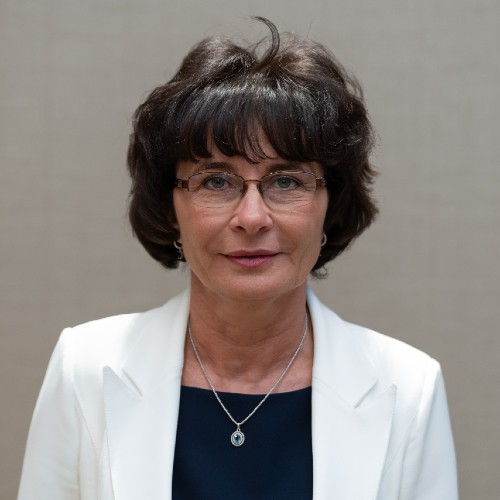
She obtained her medical degree at the Faculty of General Medicine of Semmelweis University, then completed her PhD training at the Doctoral School of Clinical Medicine of Semmelweis University. Later, she obtained an MSc degree at the Health Management Training Center.
After obtaining her first university degree, from October 1994 she worked at the Pulmonology Clinic of Semmelweis University. From April 2018, she is a part-time associate professor at the Thoracic Surgery Clinic of Semmelweis University in the status of lecturer and researcher, then from October 2020 she is a lecturer at the Thoracic Surgery Clinic in a voluntary status. From March 2024, she is the Chief Medical Officer at the Reformed Pulmonology Center, which is the legal successor of Törökbálint Lung Hospital. From October 15, 2018, she is the secretary of the Oncopulmonology Section of the Hungarian Society of Pulmonology.

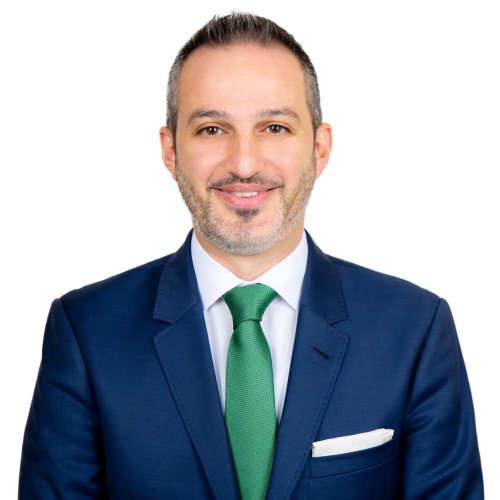
Rami Riman leverages clinical best practices across multiple healthcare disciplines through engagement with InterSystems solutions. In his role, Rami works to improve hospital workflows to ensure patient safety, improve efficiencies and increase system adoption. Rami has extensive consultancy experience in healthcare IT, including change management consultancy, professional accreditation, hospital workflow management, and realizing a return on investments. Prior to InterSystems, Rami had 10 years of clinical experience across multiple hospitals in the US, UK, Lebanon and UAE. Rami’s passion remains in increasing patient engagement to improve community’s health and awareness.
Rami holds a B.A. from the American University of Beirut in Biology, a Doctorate in Medicine from St. George’s University School of Medicine and a master’s degree in infectious diseases from the University of London. Rami is board certified in Internal Medicine and Medical Oncology.

The Digital Health Essential was May 17th, 2023. We had 260 guests and one conference room.
The Digital Health Summit brings together public and private health care, digital pharma, and manufacturers of digital medical products, venture capitalists ynd startups from around Hungary, to network, exchange ideas and to become more familiar with opportunities in Hungary. Our independent conference will become a significant event for many companies in the DH industry and is particularly important in Hungary given the explosion of business and entrepreneurship in the region.
Digital health is the convergence of digital technologies with health, healthcare, living, and society to enhance the efficiency of healthcare delivery and make medicines more personalized and precise. The discipline involves the use of information and communication technologies to help address the health problems and challenges faced by people under treatment. These technologies include both hardware and software solutions and services, including telemedicine, web-based analysis, email, mobile phones and applications, text messages, wearable devices, and clinic or remote monitoring sensors. Generally, digital health is concerned about the development of interconnected health systems to improve the use of computational technologies, smart devices, computational analysis techniques, and communication media to aid healthcare professionals and their clients manage illnesses and health risks, as well as promote health and wellbeing.
Digital health is a multi-disciplinary domain involving many stakeholders, including clinicians, researchers and scientists with a wide range of expertise in healthcare, engineering, social sciences, public health, health economics and data management.
Who attends
- + Providers / Health Systems
- + Payers
- + Pharma
- + Health Tech
- + Platform Technology Pioneers
- + Big Tech
- + Investors
Why attend?
- + INSPIRED. Our speakers are leading real business transformation, driving change across the enterprise and actioning measurable digital innovation for their businesses. Get motivated from leaders and walk away with new ideas you can implement.
- + CHALLENGED. Rethink your current processes and business blueprints, the event speakers will challenge your way of thinking and allow you to realise that new methods may be your best way of moving forward sitting alongside your current beliefs.
- + TRANSFORMED. The conference agenda and speakers are put together as such to reveal insights into how some of the biggest organisations are going about digital, from real business use cases to success stories and where the challenges may lie.
- + MEET LIKE MINDED PEERS
- + NETWORKING. It's an invaluable part of events and where real value often presents itself, meeting those who are facing the same challenges and coming together to solve similar issues. Our agendas feature numerous opportunities throughout the day to meet like minded folk from various industries and backgrounds. We have previously had extremely positive feedback from delegates who have found long lasted business relationships with those who they wouldn't normally meet from opposite industries and largely seeking out the same solutions to industry wide transformation sticking points.
Program
| 07.30 - 08.50 | Registration, breakfast, networking |
| 08.45 - 08.50 | Opening - Rita Molnár (DHE founder) |
| 08.55 - 09.10 | Digital health communication In Hungary - The COVID pandemic has significantly changed the public's attitude to self-medication and collecting health related information, with the use of rapidly accessible internet resources reaching new heights. 3 years have passed since then and a new balance has emerged in the use of offline and online channels. A recent survey by Szinapszis and the available data on internet traffic provide information on where and how the Hungarian population obtains information about diseases, treatments and health related issues as well as about the role of each channel in informing and decision-making. - Krisztián Laczkó (Szinapszis Research) |
|
09.11 - 09.28 |
Live-Saving telemedicine - Why dont we use it? View of the practicing cardiologist. - Prof. Gábor Z. Duray MD, PhD, DSc, MSc, FESC (Central Hospital of Northern Pest - Military Hospital) |
| 09.30 - 09.45 | dr. Bidló Judit (Belügyminisztérium) |
| 09.47 - 10.08 | Keynote: Accelerating Healthcare Insights. Rapidly unlocking value from your data - Rami Riman, MD (InterSystems) (az előadás angol nyelvű, szinkrontolmácsolást nem biztosítunk) |
| 10.09 - 10.31 | Keynote: - Significant changes in the survival of metastatic lung cancer in the last decade in Hungary - based on everyday practice - Gabriella Gálffy, MD, PhD (Református Pulmonológiai Centrum). Powered by MSD Pharma Hungary |
| 10.32 - 11.00 | coffee break, networking, expo |
| 11.00 - 11.50 | Artificial intelligence (AI) and machine learning (ML): AI and machine learning (ML) developments are increasingly affecting healthcare, including imaging, disease diagnosis, and drug development. AI systems can process large amounts of data and identify patterns that help doctors make more accurate diagnoses and more personalized treatment. Artificial Intelligence (AI) in Healthcare: AI has been transforming the healthcare industry by assisting in diagnosis, treatment recommendations, and patient monitoring. AI-powered algorithms can analyze vast amounts of healthcare data to detect patterns, predict outcomes, and personalize patient care. - panel discussion in English - Judit Bidló, PhD (The Ministry of Interior), Isabel Gruber, MD, PhD (MSD Pharma Hungary), Szabolcs Szolnoki (Ministry for National Economy), Rami Riman, MD (InterSystems), Moderator: Daniel Nagy (Kinstellar) |
| 11.51 - 12.05 | Digital Health goals and measurability of results - Prof. László Gulácsi, MD, MSc. Ph.D. Habil. DSc. (Óbuda University) |
| 12.06 - 12.17 | Digitization Accelerates Healthcare Industry Progress - Yurong Xu (Huawei) |
| 12.18 - 13.15 | Lunch, networking |
| 13.15 - 14.00 | Government healthcare solutions. Digital developments in public health - Legislation and financing environment supporting digitization in health care - Where are we now and what will the future bring? Digital skills development in healthcare - What digital skills should present and future healthcare workers have? Control and qualification processes for digital solutions. How can it be ensured that only high-quality, safe digital solutions can be integrated into the domestic publicly funded healthcare system? - panel discussion - Zoltán Ónodi-Szűcs (University of Debrecen), Karolina Molnár (The Ministry of Interior), Zita Szondi, MD (National Directorate General for Hospitals), Moderator: Zsombor Zrubka, MD, PhD (Óbuda University) |
| 14.02 - 14.20 | Gyula Király (Hospitality) |
| 14.22 - 14.39 | End of the healthcare - Péter Balogh (STRT Holding) |
| 14.40 - 15.00 | coffee-break, networking, expo |
| 15.00 - 15.50 | Improving Operational Efficiency: FUTURE-READY HOSPITALS - Special insight into cost-effective technology solutions that improve patient-centered care. Digital solutions such as electronic medical records (EHR), automated appointment coordination, and virtual waiting lists can help healthcare facilities and professionals increase the efficiency of their administration. This reduces the administrative burden and increases the time that can be spent on care. The PATIENT-CENTRIC approach: How to satisfy patients' expectations with seamless coordination, personalization and cooperation. - panel discussion - Dr. Dietz Gergely, MD (Gottsegen György Országos Kardiovaszkuláris Intézet)), Péter Haraszti (TritonLife), Béla Muzsik, MD (National Directorate General for Hospitals) Moderator: Anna Danó (Népszava) |
| 15.51 - 16.30 | DATA PROTECTION AND REGULATIONS OF HEALTHCARE DATA: About data protection and regulatory challenges and their evolution. How to ensure that valid data is generated and available for data-based decision-making at the institutional, regional and national level. Healthcare data assets - clinical decision-making based on data. When, what kind of data and in what form should it be available to support the work of clinicians? Cyber security in healthcare institutions - How can compliance with cyber security criteria be ensured in healthcare institutions? (Infrastructure, processes and HR) - panel discussion - Magdolna Kádár, PhD (The Ministry of Interior), Szabolcs Németh (Roche Hungary), György Székely, MD, PhD (Észak-budai Szent János Centrumkórház), Moderator: Fruzsina Mezei (Semmelweis University) |
| 16.33 - 18.00 | DHE-Party - for all speakers, attendee, sponsors, partners, supporters |
Companies registered for the conference:
444.hu, 4IG, ABRIS Informatikai és Tanácsadó, Állami Számvevőszék, AENSys, Arrow ECS, AP Summit Now, Arago, AstraZeneca, Belügyminisztérium, Berlin Chemie, Budai Egészségközpont, Büntetés-végrehajtás Országos Parancsnoksága, Centricare International, Central Hospital of Northern Pest - Military Hospital, Citibank Europe plc Magyarországi Fióktelepe, Diaverum Hungary, Digitran Hungária, Dräger Medical Magyarország, EIT Health InnoStars, Egészségkalauz, Egis, Debreceni Egyetem, Foglaljorvost Online, FleishmanHillard Café, Hartmann, Házipatika, Hifylabs, HGL, Hospitaly, Hungimpex, Inspira Research, Janssen-Cilag, GenuForm AI, Gottsegen György Országos Kardiovaszkuláris Intézet, IBT Premier Consulting, Intersystems, International Medical Partners, IQVIA Solutions Services, Kinepict Health, Königsberg Consulting, STRT Holding, Országos Korányi Pulmonológiai Intézet, Roche, Népszava, Novodata, Novartis Hungária, Nemzeti Egészségbiztosítási Alapkezelő, MAD Medical Agile Data, Matik Design, Semmelweis Egyetem, NNGYK, Spicy Analytics, Stratis, Szinapszis Piackutató, Óbudai Egyetem, Origin Consulting, Országos Kórházi Főigazgatóság, Oander, Pearl Hungary, PUTZ Property, PSO Group, SMP Solutions, Telex, TritonLife, Pécsi Tudományegyetem, Pharmaindex, Református Pulmonológiai Centrum, Vg.hu, Vállalkozók Országos Szövetsége - VOSZ, Webbeteg
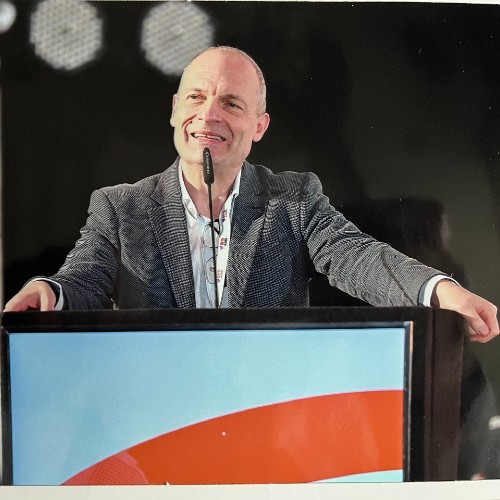
I graduated from Semmelweis Medical School in 1993 and started working at the 2nd Department of
Internal Medicine at the same university. After my board in internal medicine, I travelled to the US to
University of Miami where I did cardiology research and started my training in cardiology. I got board
certified in cardiology in 2002 and got the PhD degree in the same year. I got invited to the
Gottsegen National Cardiovascular Center and became the chief of Department of Adult Cardiology
in 2006. I was working as an interventional cardiologist and performed several structural
interventional cardiology procedures first in Hungary with my team. I got board certified in
anesthesiology and intensive care in 2008. I was invited as a visiting professor to the University of
Aberdeen to teach interventional cardiology for six mounts in 2012. In December 2015 I was
appointed as the vice medical director and in December 2017 as the general director of the
Gottsegen National Cardiovascular Center. In 2019 I got appointed as the chief of Cardiology Section
of the Hungarian Professional Medical Council. In 2022 I became professor of cardiology at the
University of Pecs. In 2023 I became the chief of the Hungarian Professional Medical Council. During
my directorate the team of our Institution became very much devoted to national and international
medical research and medical education. We run several PhD and clinical fellowship programs for
both national and international students and publish our projects in leading international peer
reviewed journals. My vision is to make Gottsegen National Cardiovascular Center visible and
recognized also in field of international cardiovascular medicine.

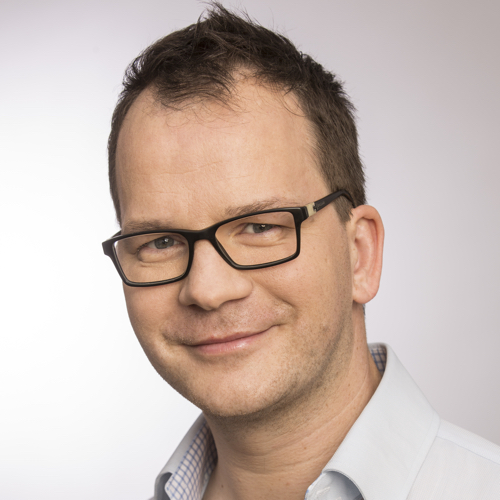
Nokia WiFi products: he was involved in the development and standardization of the first generation of wireless networks. As part of the WiFi standard, some of his ideas now facilitate the lives of hundreds of millions of people. PDAmill: founder, owner, CEO 2000-2006. A pioneering mobile game company with dozens of prizes. These days the website operates only as a museum :) NNG, a.k.a. NavNGO, i.e. iGO my way: co-founder, owner, Cto, CSO, CEO – global innovation company with 800+ employees and a revenue of ~$100m.

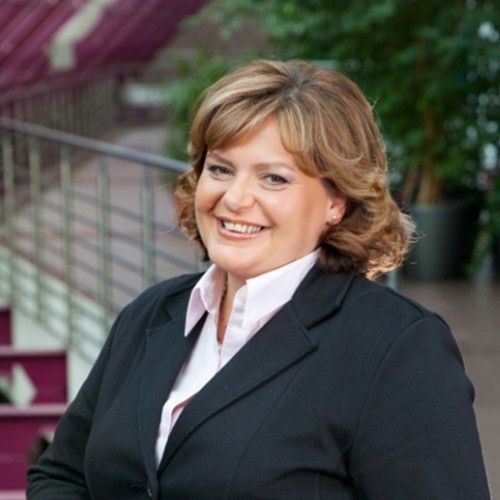
Ministry of the Interior
Dr. Judit Bidló has been the Deputy State Secretary for the Professional Management of Health at the Ministry of the Interior since March 1, 2023.
She is a pharmacist, economist, and infobionics engineer. Founding member of the Hungarian Health Economics Society. She gained her experience in the pharmaceutical industry at Novartis and the Association of Innovative Pharmaceutical Manufacturers. of which she was director for 4 years between 2005-2009. Since 2009, she worked at the National Health Insurance Fund, in the area of price reimbursement. She was the deputy general director of price reimbursement of the National Health Insurance Fund from November 1, 2018 until the end of February 2023. At NEAK, she was responsible for the operation and financing of the outpatient drug supply, the financing of medical devices and itemized based reimbursement technologies, as well as for procurement and orphan pharmaceutical products financing. She still participates in the work of the National Molecular Oncoteam at NEAK. Currently, she considers her main task to be the creation of outcome-based drug financing and the adaptation of financing systems to the telemedicine systems that are coming to the fore due to the COVID epidemic. In addition, she is a committed supporter of the development of data-driven healthcare decision-making.


Újságíró-egészségügyi szakmenedzser. Az utóbbi szakmámhoz a diplomát a Semmelweis Egyetem közszolgálati karán szereztem 2005-ben. Harmincöt éve írok újságot. A pályakezdés első néhány évének kivételével, amit a Magyar Ifjúság című és a kollégámmal Katona Józseffel alapított közös lapnál a 424 című hetilap töltöttem, mindig napilapnál (Mai Nap, Népszava, Népszabadság, Népszava) dolgoztam, dolgozom. Voltam kormányzati tudósító, politikai újságíró végül egészségügyi szakújságíró lettem. A napi munkámban a hírvadászat jól meg fér kedvenc műfajommal a riporttal. Az utóbbi évtizedekben főként egészséggazdasággal, egészségpolitikával foglalkozom. Az egészségügyből az orvos-beteg kapcsolata, az információs aszimmetria bontása, a kommunikáció foglalkoztat. A napilapos „pörgés mellett” szerkesztettem gyermeklapot, életmódmagazint és két rangos gyógyszeripari szaklap ( Pharmamarketing, Marketing Pirula) vezető szerkesztőjeként is kipróbálhattam magam.

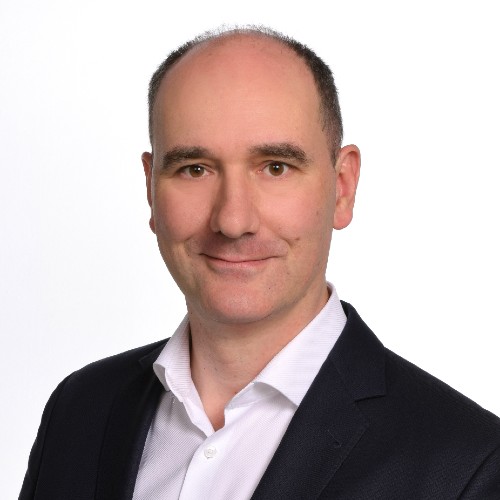
Dr Dietz Gergely általános orvosi diplomáját 2000-ben, majd háziorvosi szakvizsgáját 2004-ben a
Semmelweis Egyetemen szerezte. 2009-ig Magyarországon és Angliában praktizált.
2009-től egészségügyi startupok alapításával és vezetésével foglalkozik. Kiemelt szakterülete az
egészségügyi adatok (real-world data) gyűjtése, adathasznosítás, AI, de emellett sikerrel hozott létre
egészségügyi ellátó intézményt Délkelet-Ázsiában is.
Több éves közös szakami tevékenységet követően 2023-tól a Gottsegen György Országos
Kardiovaszkuláris Intézet tagjaként törekszik a betegellátás tényadatok felhasználásával történő
továbbfejlesztésére, egészségügyi adatok hatékony gyűjtési módszereinek kidolgozására és az adatok
gyakorlati hasznosítására.

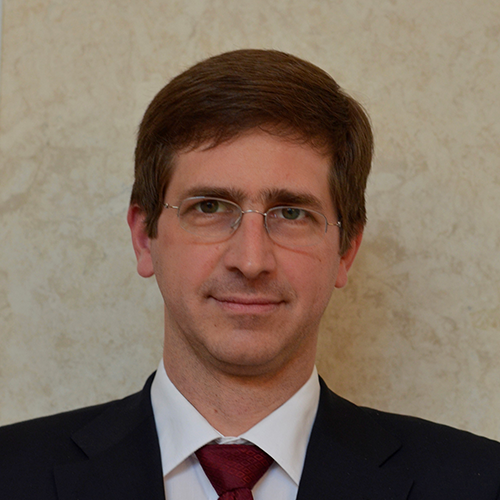
Central Hospital of Northern Pest - Military Hospital
Belgyógyász – Kardiológus, nemzetközileg jegyzett szívritmuszavar specialista. Általános orvosi diplomáját a Semmelweis Egyetemen szerezte, majd a szakképzése után 2005 és 2010 között a Frankfurti Egyetem Kardiológiai Klinikáján dolgozott, ahol a szívritmuszavar részleg főorvosaként dolgozott. Európai Kardiológus diplomát szerzett, majd az Európai Kardiológus Társaság tiszteletbeli tagjának választotta. A Semmelweis Egyetemen szerezte PhD doktori (2009) címét, Egészségügyi Menedzser MSc diplomáját (2019), majd ugyanitt habilitált (2020). A Magyar Kardiológusok Társasága Aritmia és Pacemaker munkacsoport alelnöke. Kutatási érdeklődési köre a szívritmuszavar, valamint szívelégtelenség miatt eszközös kezelésre szoruló betegek ellátási módszerei, a katéteres, műtéti (pacemaker, defibrillátor), valamint gyógyszeres kezelési stratégiái. Bevezette Magyarországra a legmodernebb, teljesen a szívbe ültethető törpe pacemaker (Micra) alkalmazását, és tapasztalataival nagymértékben hozzájárult a technológia széleskörű elterjesztéséhez. A mindennapi betegellátás mellett fontos számára az eszköz- és gyógyszergyártókkal való szoros együttműködés, a diagnosztikus és terápiás eljárások kifejlesztésével és alkalmazásával kapcsolatos kutatómunka.

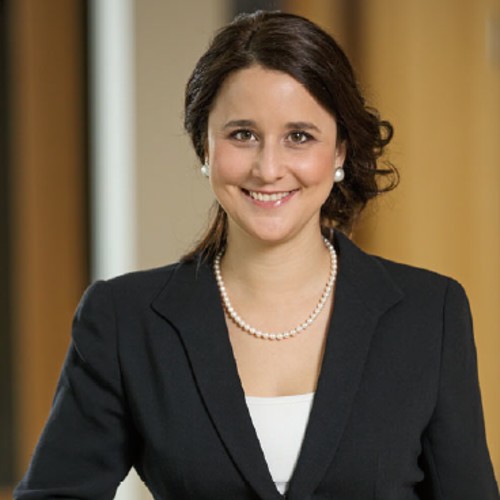
She completed her university studies at the University of Zurich in Switzerland, where she obtained degrees in general medicine, MSc and then PhD. Later, she took part in professional further training for clinical investigations and pharmaceutical market entry expert courses at the world-famous ETH University in Zurich.
She has been working at MSD for 15 years, starting her career in the company's Swiss headquarters in the field of women's health. She then held global leadership positions within the oncology business unit in Switzerland, Singapore and China.
Since 2021, she has been the managing director of MSD Hungary. Under her leadership, the number of external university collaborations of the organization has increased, and she places great emphasis on Real-World Evidence research projects.

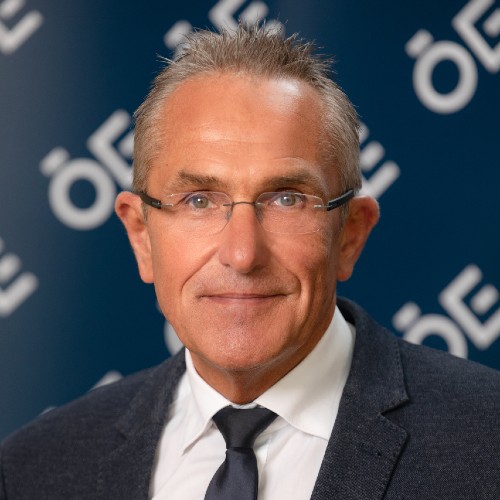
Óbuda University of Budapest
László Gulácsi works as a Vice Rector for Research, and a professor at Health Economics
Research Centre, University Research and Innovation Center, Óbuda University of Budapest,
Hungary. He is a head of the Innovation Management Doctoral School Óbuda University. He is
a member of the Standing Committee of Pharmacy, Hungarian Academy of Science.
By profession he is a physician (Debrecen Medical University), having university degrees of
programming mathematics (Kossuth Lajos University of Arts and Sciences, Debrecen),
mathematical economics and sociology (Corvinus University of Budapest) and health
economics (University of York).
He received PhD degrees from the Medical University of Amsterdam, Corvinus University of
Budapest, Semmelweis Medical University in Budapest and from the Debrecen Medical
University. He is qualified in social medicine.
Habilitated and he is a Doctor of the Hungarian Academy of Science.
He is a member of the Editorial Board of the European Journal of Health Economics (EJHE)
IF:3,689, the Value in Health Regional Issues (ViHRI) Editorial Advisory Board, the
Editorial Board of the Hungarian Medical Journal IF: 0,540, and the Society and Economy,
Health Academy, University of Pécs.
He worked as vice rector for research Corvinus University of Budapest 2018-2019. He was a
founding head of Department of Health Economics (2013-2020) and founding head of Health
Economics and Health Technology Assessment Research Center, Corvinus University of
Budapest. He is the founding past President of the Health and Health Care Economics
Section of the Hungarian Economics Association (2010-2015).
So far, he has been involved in 18 European Commission funded research projects (Framework
Programmes, FP6, FP7, H2020), as a research leader, coordinator or participant.
Current projects:
Development and evaluation of innovative and digital health technologies; Thematic Excellence
Programme, Research Leader (National Research, Development and Innovation Fund project
TKP202 NKTA 36);
Changes in the Socio-economic Burden of Epidermolysis Bullosa in Europe, BUR-EB;
researcher (funded by the EU Horizon 2020 Research and Innovation Programme with the
support of the European Joint Programme on Rare Diseases COFUND-EJP N825575, with the
support of the NKFIH as a national participant, 2019-2.1.7-ERA-NET).
To date he (co)authored 775 scientific articles in peer reviewed journals, published 16 books, 78
book chapters on health economics, public health, health technology assessment, health policy
and quality improvement.
IF: 409,663; MTMT 1 Citations 4938 (independent 3484),, Hirsh index 36. GoogleScholar:
Citations: 6688; Hirsch index 46.
( https://scholar.google.nl/citations?hl=en&user=ek0KaHUAAAAJ )
In the past 5 years (2018-2022) publications: D1=32; Q1: 13, Q2: 7; Q3=6; Q4=2, in Total: 60.
He has successfully supervised the completion of 8 PhD thesis.
Publication list: https://vm.mtmt.hu//search/slist.php?lang=0&AHuthorID=10003170
Web: http://uni-obuda.hu/hecon
HECON Web: https://hecon.uni-obuda.hu/

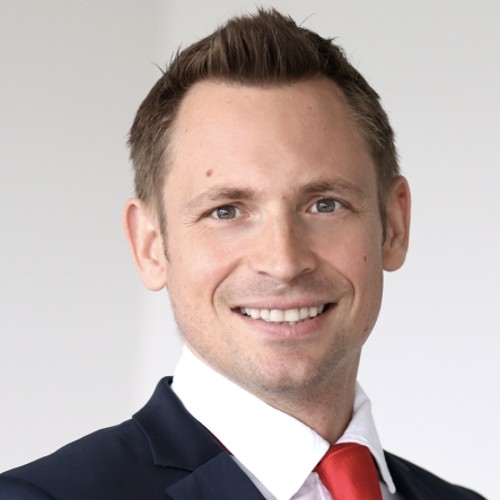
Peter graduated in 2005 from the Budapest University of Technology and Economics with a
degree in Technical Management. In 2018, he founded the TritonLife Group with the goal of
consolidating the Hungarian private healthcare sector and establishing a nationwide healthcare
provider. As the CEO of TritonLife, he focuses on developing the company, introducing new
strategic ideas and financing growth. The TritonLife Group has become the fastest growing and
leading entity in the transitioning Hungarian private healthcare sector. It boasts a dynamically
expanding network of private hospitals and a fully integrated, nationwide system of inpatient,
outpatient care, and laboratories. Over the past decades, Peter has consistently demonstrated
passion, focus, and forward-thinking entrepreneurship.


Healthcare Financing and Development of the Ministry of the Interior
Graduate public health specialist, Doctor of Health Sciences. She has 10 years of experience in IT software design and coordination of IT developments. Her main task was the process-level synchronization of IT developments. Contact with users of healthcare field, the measurement and organization of business requirements. Planning of system describe processes, preparing of prior specifications. Coordination of developments and support the functional testing.
Previously, she carried out IT process manager, lead coordinator and healthcare specialist tasks in several projects implemented with European Union funds. Between 2012 and 2017 she strengthened the project team of National Public Health Center (formerly Office of the Chief Medical Officer of State), between 2017 and 2022 she was responsible for the developments of central hospital integrated management systems and medical laboratory diagnostic systems at National Directorate General for Hospitals. Under her project leading, the national introduction of Central Financial Approval System was implemented in all institutions provide publicly owned in-patient care.
Currently, she pays special attention to the domestic digital healthcare and from 2023 to the coordination of e-health department operating within the Deputy State Secretariat for Healthcare Financing and Development of the Ministry of the Interior. Head of the Health Development Policy Department at Deputy State Secretariat.

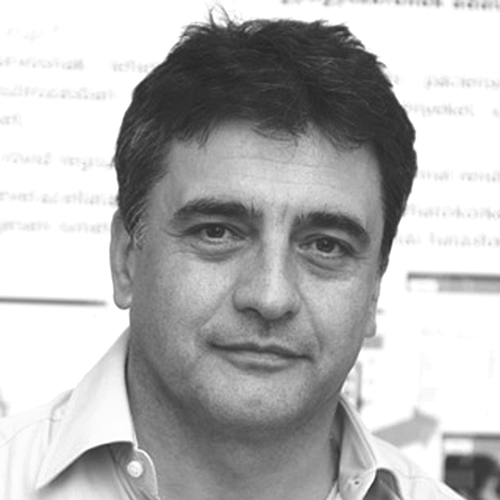
Engineer, economic engineer, health manager. He graduated from the Budapest Technical University and the Semmelweis University. He is a co-owner and strategic director of several software development IT companies, including Hospitaly Healthcare Informatics Ltd. For five years he was Deputy Director General of IT and Registration at the National Health Insurance Fund Administration. His main areas of expertise are e-Health, m-Health, Design and Development of Enterprise Resource Planning (ERP) Systems, Managing Health Big Data and Patient Pathway Optimization projects, and developing National Health Information Systems concepts. For 20 years he has been an external lecturer at the Semmelweis University Health Management Training Center and the Széchenyi István University Faculty of Technology. Co- editor of the IT section of the IME scientific journal. In 2012, he created the iKórlap mobile application and made it available free of charge to all Hungarian GPs for receiving the ICT Innovation of the Year award from the Association of IT Entrepreneurs and the National Innovation Office.

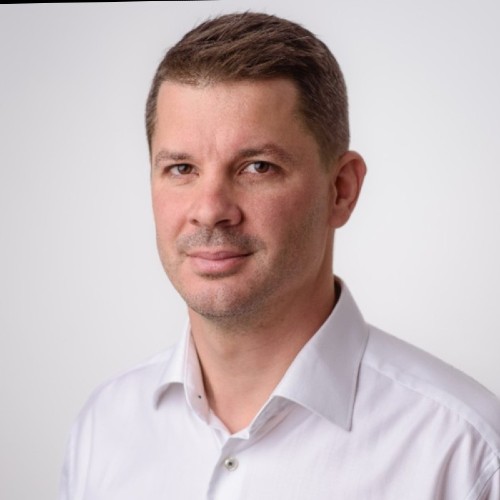
Krisztián Laczkó holds a degree in economics (MSc), and has been working
as the business development manager and a consultant at Szinapszis Market
Research & Consulting and the affiliated Quercus Consulting and Pearl Hungary
Health Communication Agency since 2010. He has expertise in both HCP and laymen
healthcare communication, providing data driven insights and solutions for pharma
and healthcare clients in these fields. Krisztian develops tailored multichannel
communication strategies and designs campaigns both locally and in the CEE
region.


Fruzsina Mezei MSc graduated from Durham University as a Medical Anthropologist in 2017 and received her master’s degree in Health Policy, Planning and Financing from Eötvös Lóránd University in 2019. She started her career at the National Public Health Centre of Hungary (NNK) as Health Policy Advisor (2017-2020) strategically planning and implementing evidence-based developments in the field of primary care. Her current focus is health economics and health technology assessment of digital health innovations and innovative medical technologies. She joined the Centre for Health Technology Assessment, Semmelweis University as a PhD student in the fall of 2021. Working on national and international healthcare projects, primarily in the field of chronic care, she has first-hand experience in the barriers of implementing innovative digital health solutions in the public health sphere. As the Digital Health Strategist of Omron Medistance, her goal is to help health technology developers overcome these barriers.

Molnár Karolina, stratégai ügyekért felelős helyettes államtitkár, végzettsége szerint bölcsész, 2022-
től a Belügyminisztérium munkatársa.
2007-ben végzett az Eötvös Loránd Tudományegyetem Bölcsészettudományi Karán. Menedzsment-
szemléletét a kohézióspolitika területéről hozza, a projektmegvalósítástól lépett fokozatosan a
tervezési oldal felé 2012 után.
2016 és 2022 között az Emberi Erőforrások Minisztériumában az európai uniós fejlesztések stratégiai
tervezéssel és koordinációval foglalkozó területén főosztályvezető-helyettes. 2018-tól
főosztályvezető a tárca stratégiai ügyekért felelős helyettes államtitkárságán, a
minisztérium stratégiai tervezési feladataival és szakpolitikai stratégiák, intézkedési tervek
kidolgozásával, kormányzati összehangolásával foglakozott. Ezen időszakban kapcsolódott be a
statisztikai tervezési és koordinációs feladatokba, a Nemzeti Statisztikai Koordinációs Testület tagja.
2022. júniusától a Belügyminisztérium Stratégiai Főosztályának vezetőjeként általánosan a döntések
előkészítését segítő, társadalmi hatásait vizsgáló, a döntéshozatali folyamatot támogató
adatgyűjtések, összehasonlító elemzések, modellek készítésérért felel.
2024. március 1. óta a Belügyminisztérium stratégiai ügyekért felelős helyettes államtitkára. Az
Országos Statisztikai Tanács tagja. A kezdetektől részt vesz az EgészségAblak mobilapplikáció
fejlesztésében és a Járóbeteg Irányítási Rendszer intézményi bevezetésében.

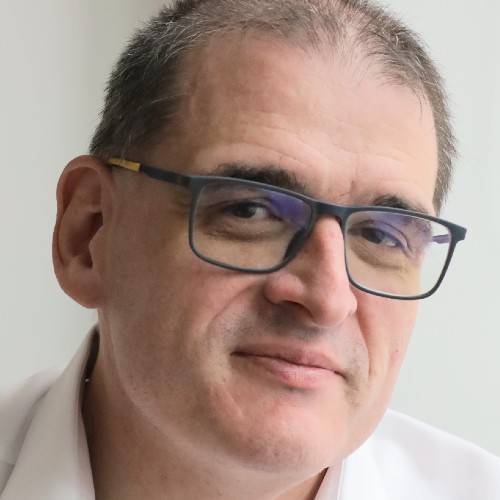
Dr. Muzsik Béla 2000-ben végzett a Debreceni Orvostudományi Egyetemen. Ezt követően néhány
évig az alapellátásban dolgozott; és háziorvosi, majd pedig foglalkozásegészségügyi szakvizsgát tett.
Ezzel párhuzamosan a Budapesti Műszaki és Gazdaságtudományi Egyetem és a State University of
New York at Buffalo és a Rochester Instutute of Technology közös képzésének keretében Master of
Business Administration diplomát szerzett Humánmenedzser, valamint Pénzügyi és gazdasági
szakirányokon.
2006-tól az Országos Szakfelügyeleti Módszertani Központ munkatársa, ahol minőségügyi
kérdésekkel, elektronikus ágazati adatgyűjtésekkel, klinikai auditokkal foglalkozott. 2008-ban Európai
Minőségügyi Auditor vizsgát tett.
2011-től a Gyógyszerészeti, Egészségügyi Minőség- és Szervezetfejlesztési Intézet, majd pedig
folytatólagosan az Állami Egészségügyi Ellátóközpont és az Országos Kórházi Főigazgatóság elemző
szakértője. Kezdetben a minőségügyi szakfőorvosi rendszer feladatait támogatta; részt vett a magyar
egészségügy minőségügyi coaching módszertanának kidolgozásában, valamint az evidencia alapú
szakmai irányelvfejlesztés módszertani megalapozásában.
2014-15-től egyre jobban bevonódott ágazati szintű adatfeldolgozási kérdésekbe, orvosszakértőként,
majd pedig vezetőként részt vett egy jelenleg is működő ágazati adattárház (Pulzus/ Pulvita rendszer)
kiépítésében. Az adattárház eredménytermékeinek felhasználásával munkatársaival közösen választ
tudnak adni számos egészségügyi strukturális, finanszírozási és ellátásszervezési kérdésre.
Az Európai Uniós projektekben alapellátás szervezéssel, minőségügyi és betegbiztonsággal
kérdésekkel, betegútszervezéssel foglalkozott.
Egy egyetemi jegyzet szerzője és szerkesztője, valamint több minőségüggyel és epidemiológiával
foglakozó közlemény társszerzője.

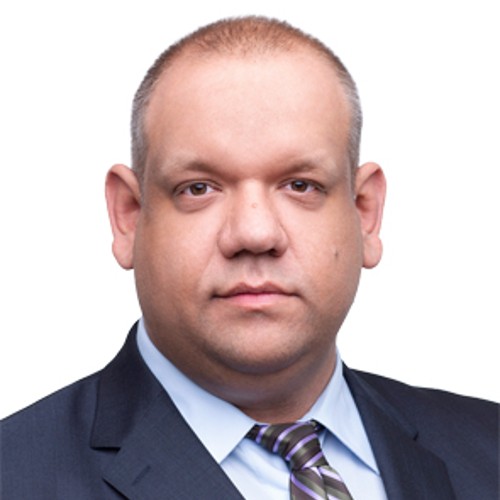
Dániel is a Senior Associate in the Budapest office and the Head of the Budapest Technology, Media
and Telecommunications (TMT) service.
Dániel has wide range of expertise in the fields of GDPR and other data protection issues, trademarks,
broad range of IP agreements, as well as in software license, development, and various sector
specific contracts (e.g. in the IT, automotive and financial services). He has conducted scores of data
protection compliance projects based on the GDPR and provided privacy advice to companies that
process large amounts of personal data.
Dániel provides ongoing legal support to healthcare and pharmaceutical clients, in particular regarding
the data protection and privacy aspects of clinical trials.
He speaks Hungarian, English and French.

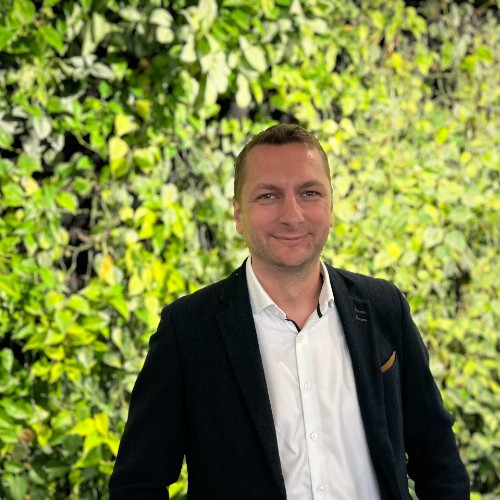
Végzettségét tekintve mechatronikai mérnök, robottechnika és nanotechnológia szakterülettel. A diploma megszerzése után mikromotorok fejlesztésével és azokkal kapcsolatos kísérletekkel foglalkozott, majd termelő vállalatok műszaki vezetésében szerzett tapasztalatot, ahol fontos célja volt a technikai folyamatok és a termelési rendszerek hatékonyságának növelése.
2015 - ben csatlakozott a Roche (Magyarország) kft. -hez, a szervizmérnök csapat vezetőjeként. Ez időszak lehetővé tette számára, hogy mélyebb betekintést nyerjen az egészségügyi iparági, ezen belül leginkább a laboratóriumi és betegágy melletti diagnosztikai folyamatokba és megértse az abban rejlő lehetőségeket és kihívásokat.
2022 óta, a Roche Digitális transzformációjáért és stratégiai projektekért felelős vezetője.
Hisz abban, hogy a folyamatosan fejlődő technológiák és digitális megoldások nagy lehetőséget rejtenek az egészségügyi rendszer és a betegellátási folyamatok optimalizálása és jobbá tétele érdekében. Munkája során azon dolgozik, hogy ezen lehetőségek a mindennapokban is biztonságos és elérhető részét képezzék az életünknek, kihasználva a digitalizáció adta lehetőségeket és segítve az azzal szemben keletkező nehézségek és esetleges ellenérzések leküzdését.

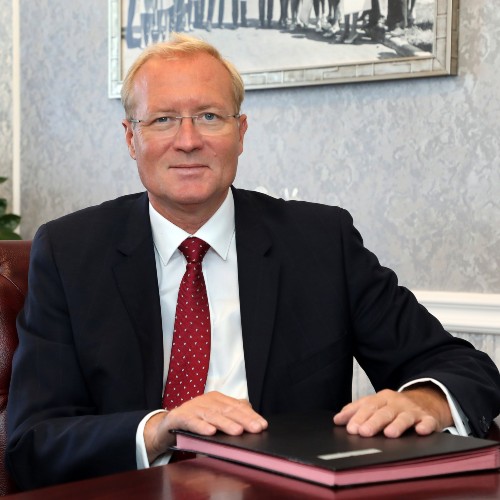
dr. Révész János, MD, PHD 1995-ben végzett a SOTE általános orvos karán, majd 2021-ben egészségügyi szakmenedzser master diplomát szerzett a Debreceni Egyetemen. Szülész-nőgyógyász, onkológus és farmakológus szakvizsgákat szerzett 2000-2007 között. 1995-ben a Borsod-Abaúj-Zemplén Megyei Központi Kórház és Egyetemi Oktatókórházban kezdett dolgozni, rezidensként, majd 2018-ban kinevezték főigazgatóvá. A Miskolci egyetem oktatója és számtalan szerkesztői, tanácsadói, társaság vezetői és egyéb kiemelt szakmai aktivitás jellemezte az elmúlt 20 évét. 5 kitüntetése van. 2024. január óta az OKFŐ főigazgatója.


-

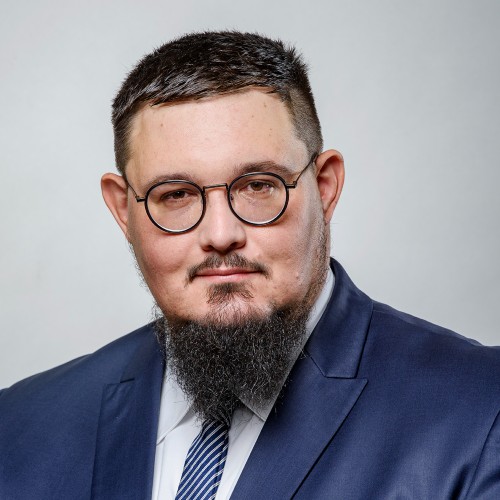
Currently, as the Deputy State Secretary for Technology at the Ministry of Economic Development of Hungary, my primary mission is to design and implement programs which foster the technological maturity level improvement among Hungarian companies. I am also a researcher and a PhD candidate. In the past, as the Chief Innovation Officer to the President my primary assignment was counseling and generating project initiatives related to university-centric innovation ecosystems. As the founder of an international NGO I was dealing with innovation and humanitarian technology transfer. Earlier, as the Deputy Chief Executive Officer for Valorisation at Express Innovation Agency my role was to make scientific insights available and useable to industry; transforming knowledge and technology into something tangible for the benefit of the society and the economy. I used to be the former Deputy CEO for Innovation and Business Development at EAC Group, the most emerging multi-strategy firm in the CEE region operating consulting, investment and IT technology development arms. Between 2017-2021 as the diplomat for scientific and technological affairs in Tel-Aviv, my job was initiating projects mainly in cybersecurity, fintech, life sciences, mobility and space-industry. I am also the former head of startup relations of the governmental Export Promotion Agency (HEPA) and former head and concept developer of Budapest capital city’s municipal startup incubator and microfinance provider (BVK). At the begining of my carreer I worked as an employment policy expert at the Ministry for Economy and earlier at a parliamentary group. I also am involved in co-managing our family's enterprises.

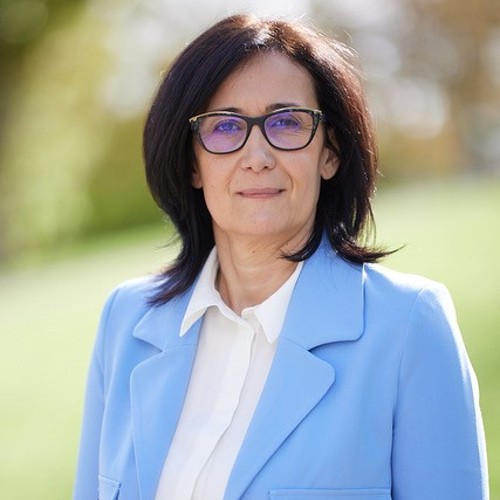
1971-ben született Mátészalkán; fül-orr-gégész szakorvos, okleveles egészségügyi menedzser. 1997-től felsővezetői kinevezéséig gyógyítóként dolgozott. 2010-2015 között a Szabolcs-Szatmár-Bereg Megyei Kórházak és Egyetemi Oktatókórház orvosigazgató helyettese, a Mátészalkai Kórház ügyvezető igazgatója, majd az SZSZBMK főigazgató helyettese. 2015-2022 között az intézmény orvosigazgatója, majd főigazgatója. 2019-2020 között egészségügyi projektekben tanácsadóként, szakértőként dolgozott. 2022 júliusa óta az OKFŐ alap- és szakellátásért felelős főigazgató-helyettese


I have been working in the government and public sector for 13 years. My work focuses on digital transformation of the government and public sector.
In the early days of my work at Huawei, I was a vertical solution expert in the healthcare industry. I am now based in Dusseldorf, Germany. I manage Huawei's overall development in the healthcare industry in Europe, focusing on how to leverage Huawei's advantages in the ICT field and accelerate industry development with partners.
My team has delivered AI-assisted diagnosis, medical IoT, gene sequencing, and digital pathology projects in Germany, France, Spain, Italy, Belgium, and Switzerland.

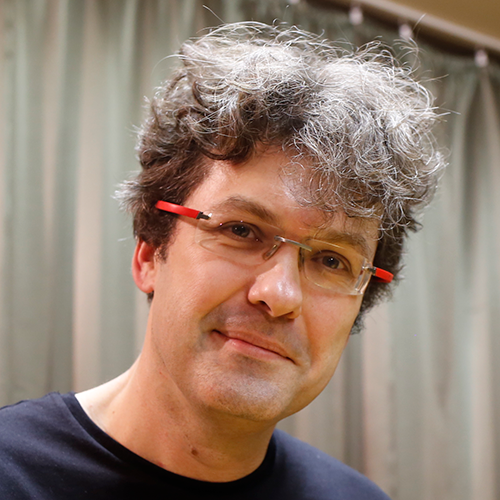
University Research, Innovation and Service Center, Óbuda University
In addition to his research in digital health, biotechnology and health economic evaluation, he is a lecturer of health economics and healthcare innovation for Hungarian and international students. Prior to his academic career, Zsombor has worked in child psychiatry, and then he spent 17 years in the pharmaceutical industry in various national and international roles including sales, medical, marketing and business unit management. He has worked in the European Brand Team of Pfizer from Hungary, Germany, the UK and France. At Egis Pharmaceuticals Plc. he led the launch of the first biosimilar monoclonal antibody in a number of countries in Eastern Europe and the CIS region. He graduated as a medical doctor at the Semmelweis University, and holds and MBA from the Oxford Brookes University as well as a PhD from the Corvinus University of Budapest.


 24th May, 2024,
24th May, 2024,  Danubius Radisson Blu Hotel, Budapest, Teréz krt. 43, 1067
Danubius Radisson Blu Hotel, Budapest, Teréz krt. 43, 1067

















